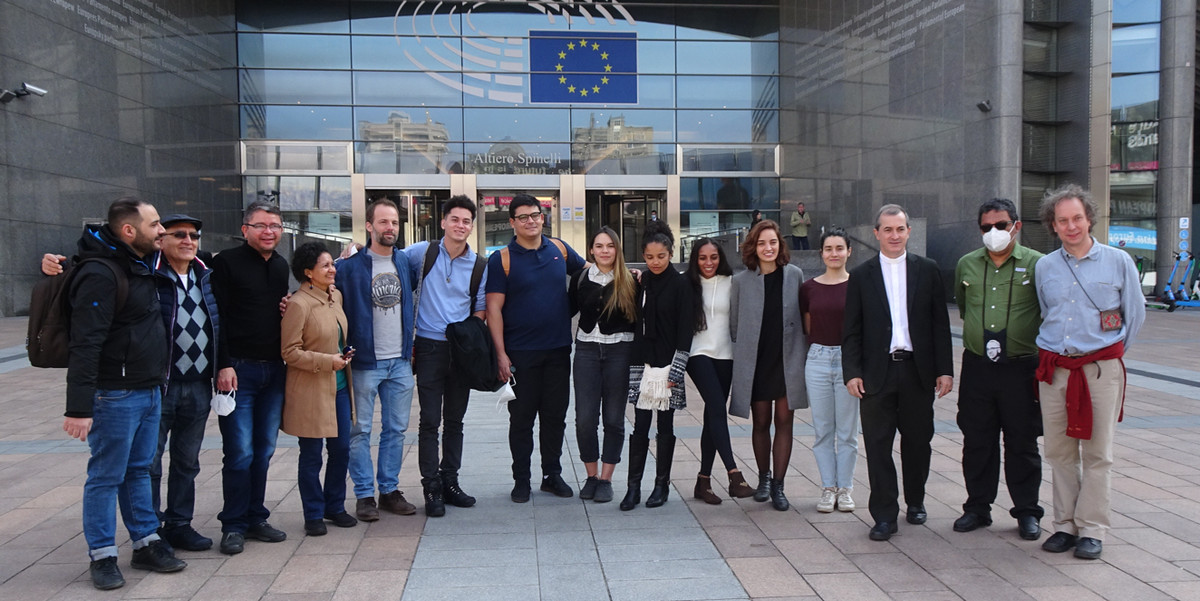A recount of the event “But Let justice roll-on like a river” with representatives from affected areas in Latin America
Communities in Latin America are left to face daily the consequences of trans-national corporations’ (TNCs) activities, among which extractive industries are especially harmful. Oil extraction, mega-dam projects and mining activities drain the region of its natural resources and lead to biodiversity and cultural diversity loss, environmental pollution and human rights violations.
A prime example of this is the case of Brumadinho, Brazil, where the collapse of a tailings dam, caused by corporate negligence, resulted in the death of 272 people in 2019.
To discuss this and other cases of territories affected by the mining industry, a Latin American Caravan of community organisers and religious leaders from the Iglesias y Minería network embarked on a tour of Europe. Their aim is to spread awareness of their struggle against extractivism and hold meetings with Members of the European Parliament, policy-makers, faith leaders and allies such as CIDSE. The arrival of the Caravan was tied to current policy developments, like the European Commission’s proposal for a Directive on Corporate Sustainability Due Diligence (CSDD) and the negotiations for a United Nations’ legally Binding Treaty on Business and Human Rights.
During their stop in Brussels, on March 24, the delegation took part in “But let justice roll-on like a river”, an event co-organised by CIDSE, COMECE and Iglesias y Minería to connect policy debates in the field of corporate regulation to the lived experiences of Latin American community and faith leaders.
The event was moderated by CIDSE’s Secretary General Josianne Gauthier, while COMECE’s president H. Em. Cardinal Hollerich delivered the opening remarks. In his speech, the Cardinal drew a link to the EU Commission’s proposal on corporate regulation, expressing his hope that it would be significantly strengthened in terms of scope of the companies covered, victims’ ease of access to justice and the enforceability of companies’ obligations.
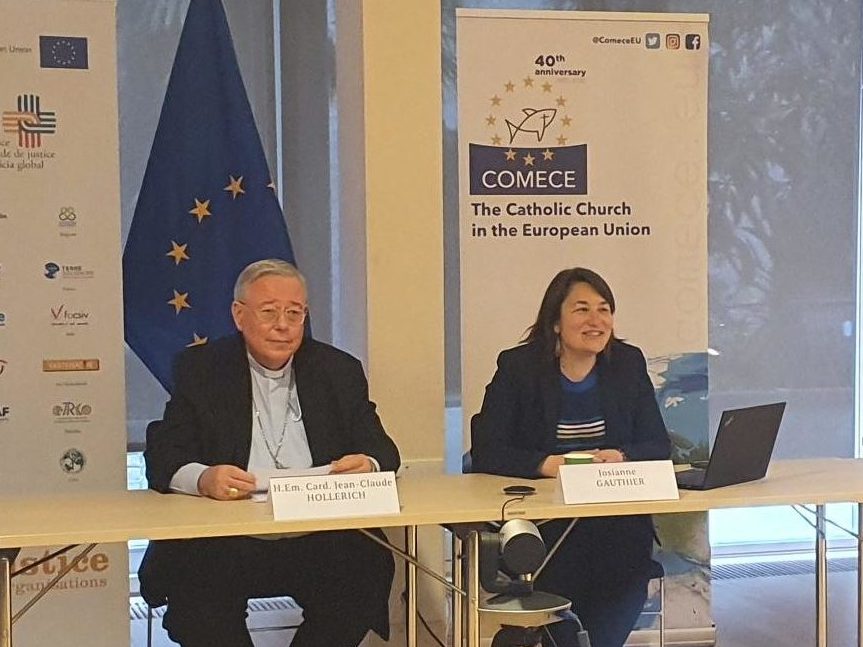
The first member of the Caravan to speak was Bishop Vicente de Paula Ferreira, Auxiliary Bishop of the Archdiocese of Belo Horizonte and member of the Special Episcopal Commission of Integral Ecology and Mining of the Brazilian National Catholic Bishops’ Conference (CNBB). Msgr Vicente acknowledged the community’s resilience in times of great suffering and pointed out the need to promote alternatives to extractivism in Brumadinho.
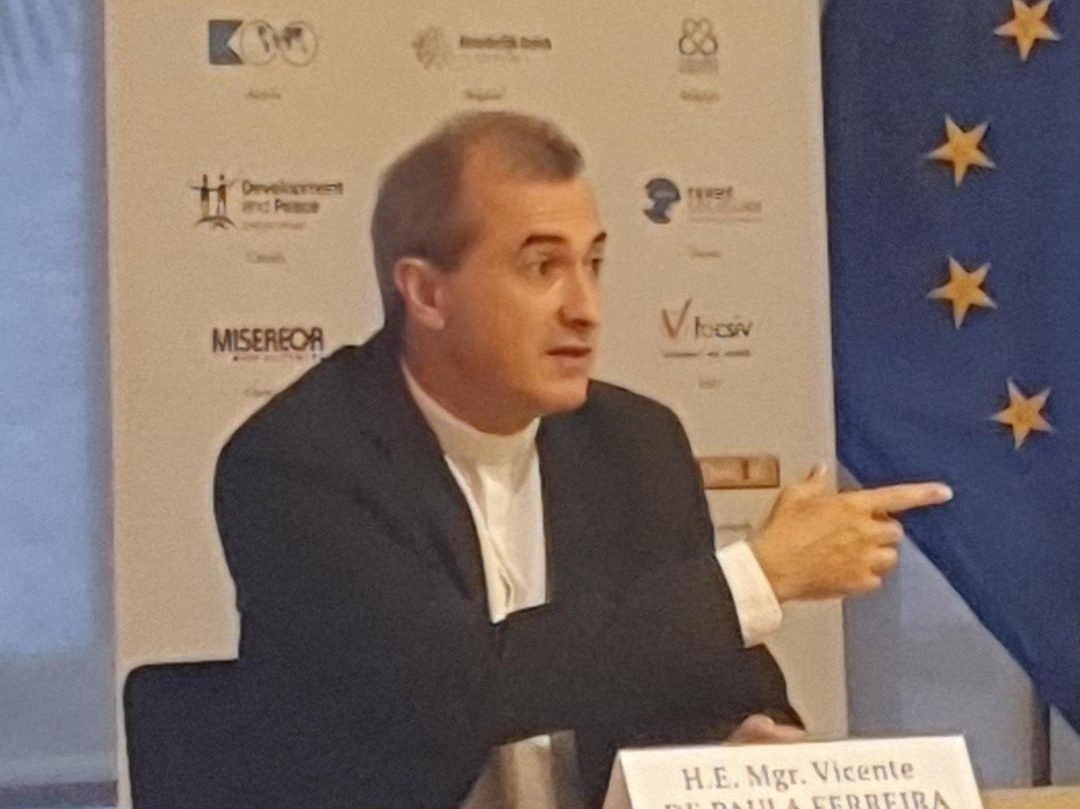
Fr. Juan Carlos Osorio Arenas, Director of the Social Pastoral, Diocese of Caldas (Colombia), traced the development of local environmental groups that defend the resource-rich region of Southwestern Antioquia from the interests of mining corporations. He also expressed concerns over the great power imbalance between communities and TNCs in their legal disputes.
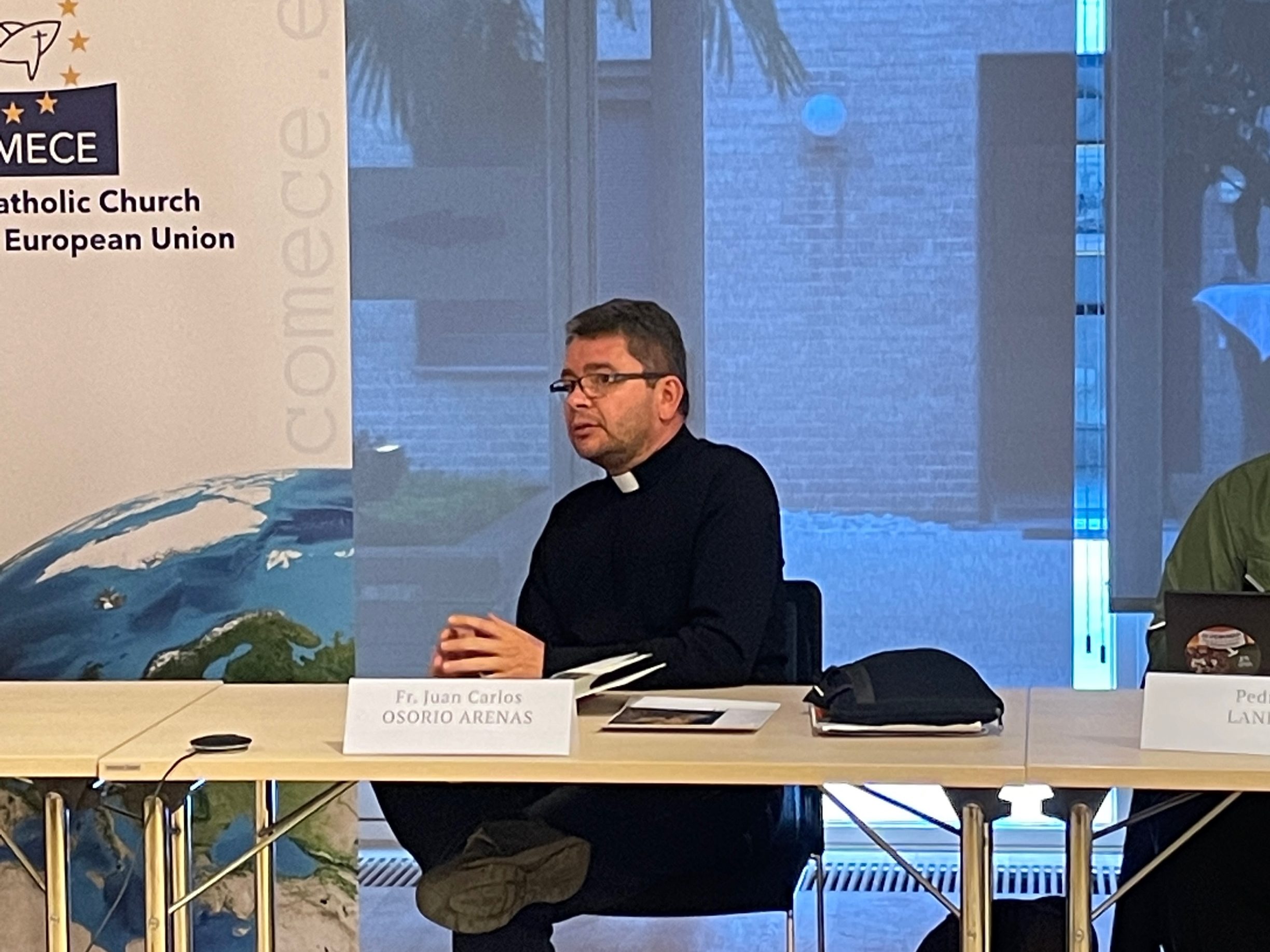
Javier Martín Cerracin, Human Rights Policy Officer at the European External Action Service, stressed that the CSDD proposal can trigger a positive change in business culture in relation to human rights and the environment. At the same time, he also wished that it might lead to better national regulations outside the EU.
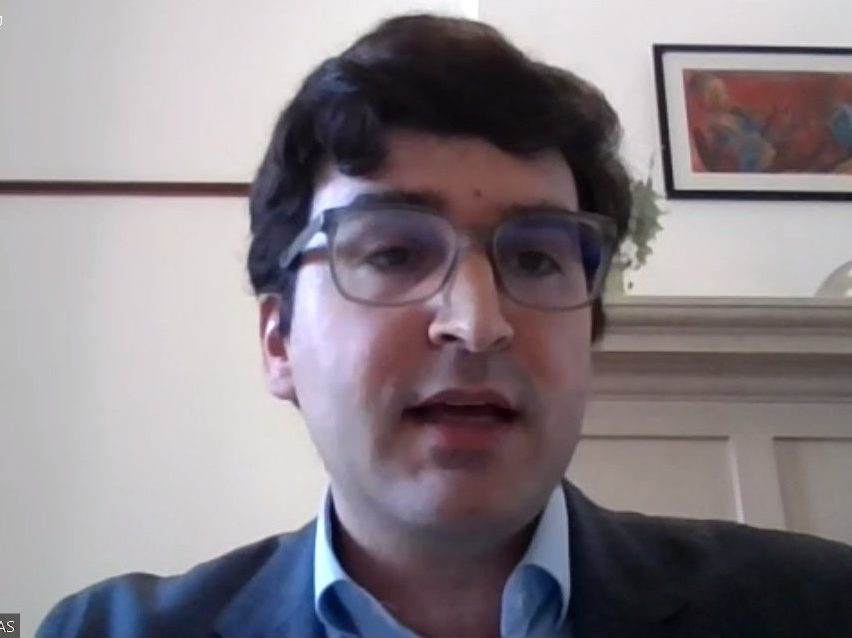
According to Pedro Landa, member of the group Iglesias y Minería from Tegucigalpa (Honduras), the countries whose companies and banks profit from mining in Latin America have a responsibility to regulate corporate behaviour. Iglesias y Minería’s “Divest in Mining campaign” aims to put a halt to investments in mining that harm Latin American communities.
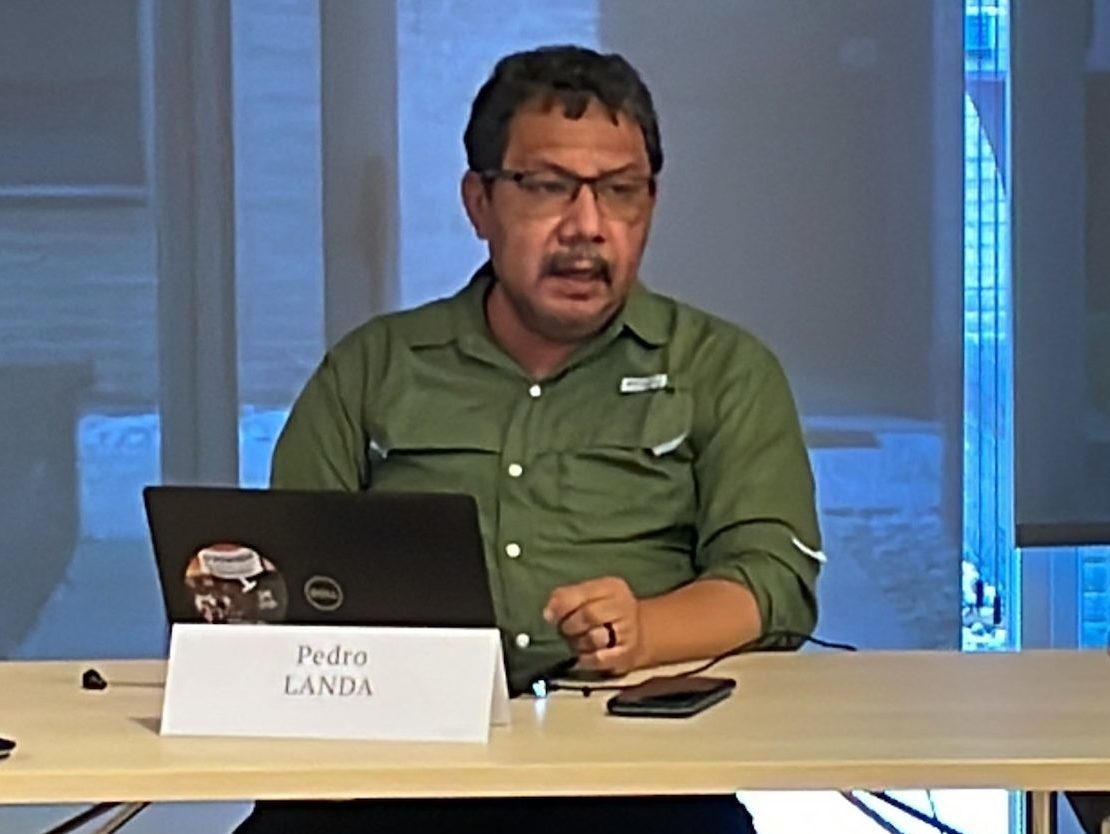
Finally, Constanza del Pilar Carvajal Vargas, lawyer, member of the collectives Rios y Reconciliación and Territorio y Vida (Colombia), reminded the audience that last year Colombia was the deadliest country for environmental defenders. In light of this, she emphasised the need to reduce global consumption of new minerals.
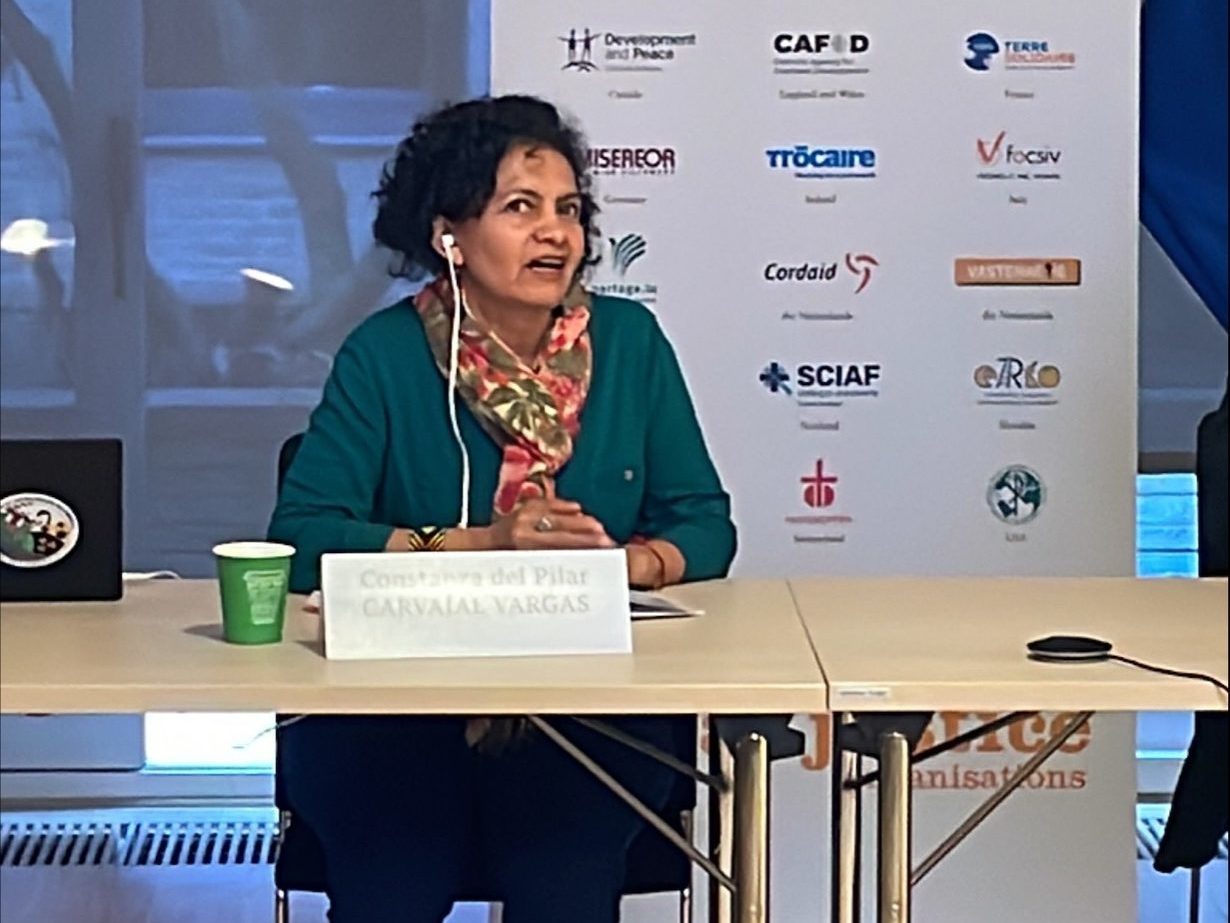
To sum up, the event showed that extractivism has real, harmful effects on the ground, which need be tackled with new solutions and regulations to protect our Common Home. Listening to the voices of those affected by corporate abuse is key to building a world where profit no longer comes before human rights and the environment.

